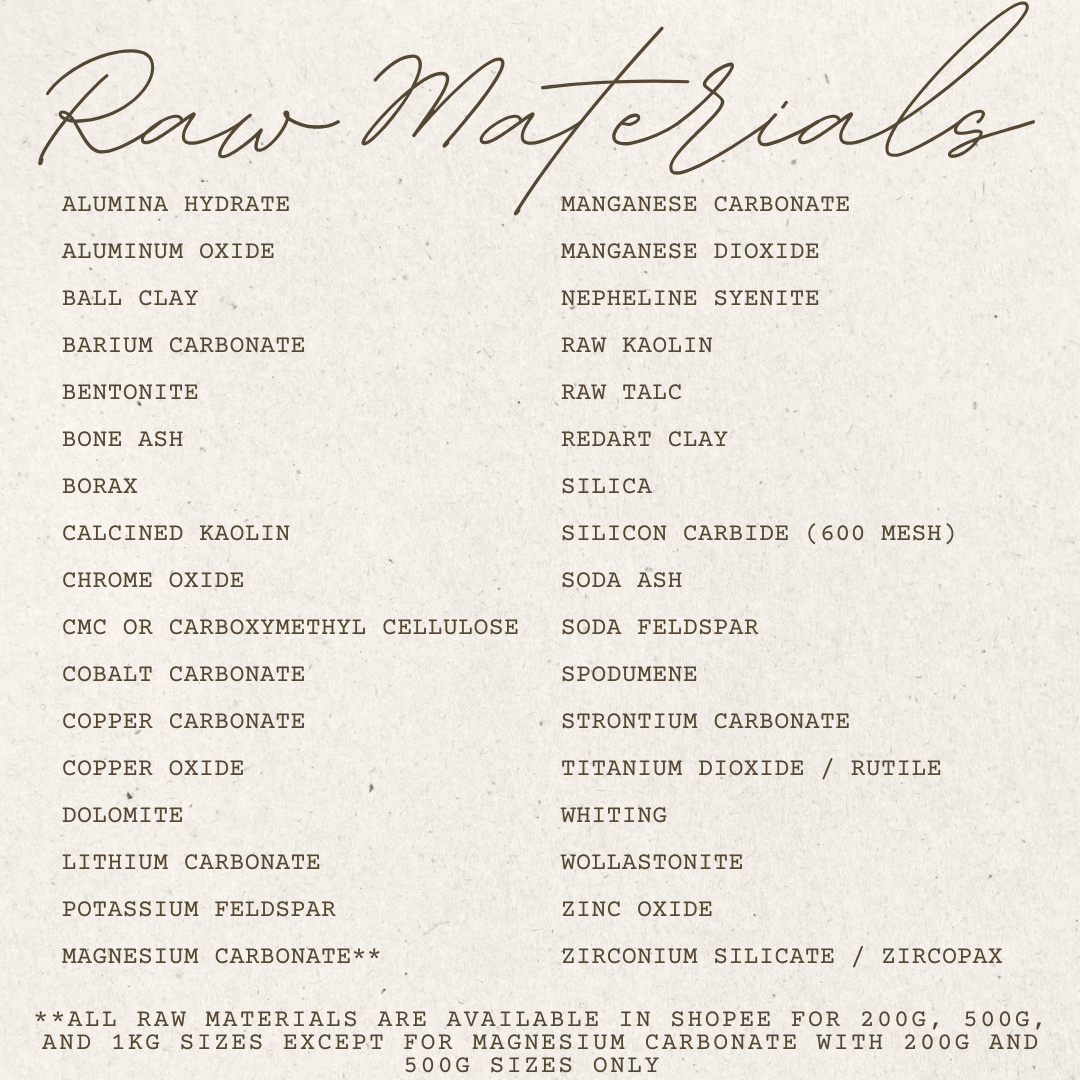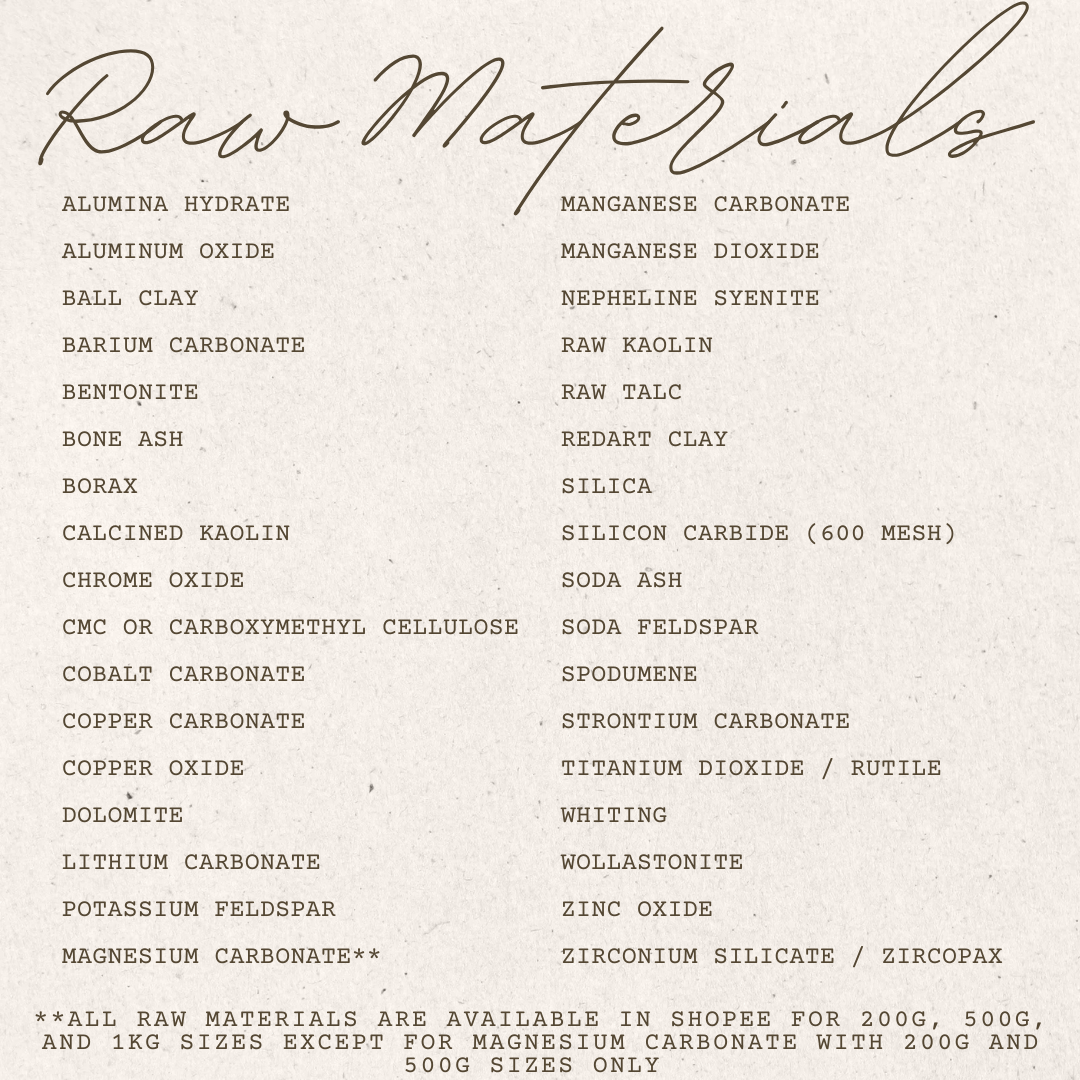Barium Carbonate is an inorganic compound valued for its versatility across industries, from improving the surface quality of ceramics to acting as a critical agent in the production of glass, chemicals, and building materials. However, due to its toxicity, it must be handled with care.
Barium Carbonate, in pottery, is primarily used as a flux in glazes, helping to lower the melting point and create smooth, glossy finishes. It also acts as a matting agent in certain ceramic glazes, reducing gloss for a more satin-like appearance. Additionally, barium carbonate is essential in preventing efflorescence—unwanted white salt deposits—on the surface of pottery by neutralizing soluble sulfates present in clays. Its use enhances the aesthetic quality and durability of ceramic pieces, making it especially valuable in the production of stoneware, tiles, and decorative glazes. However, due to its toxicity, careful handling is required.
Appearance:
-Fine, white crystalline powder
-Odorless and insoluble in water
Other applications in different industries:
1. Glass Manufacturing:
Added to certain types of glass, especially optical glass, to improve transparency and durability.
2. Brick and Tile Industry:
Helps prevent efflorescence (white salt deposits) by reacting with soluble sulfates in clays, improving the quality and appearance of bricks and tiles.
3. Chemical Industry:
Utilized in the production of barium-based chemicals, such as barium sulfate and other salts.
4. Pigments and Paints:
Acts as a component in the production of certain pigments and coatings.
NOTE: All Raw Materials are very fine-grained (200-325 Mesh).








